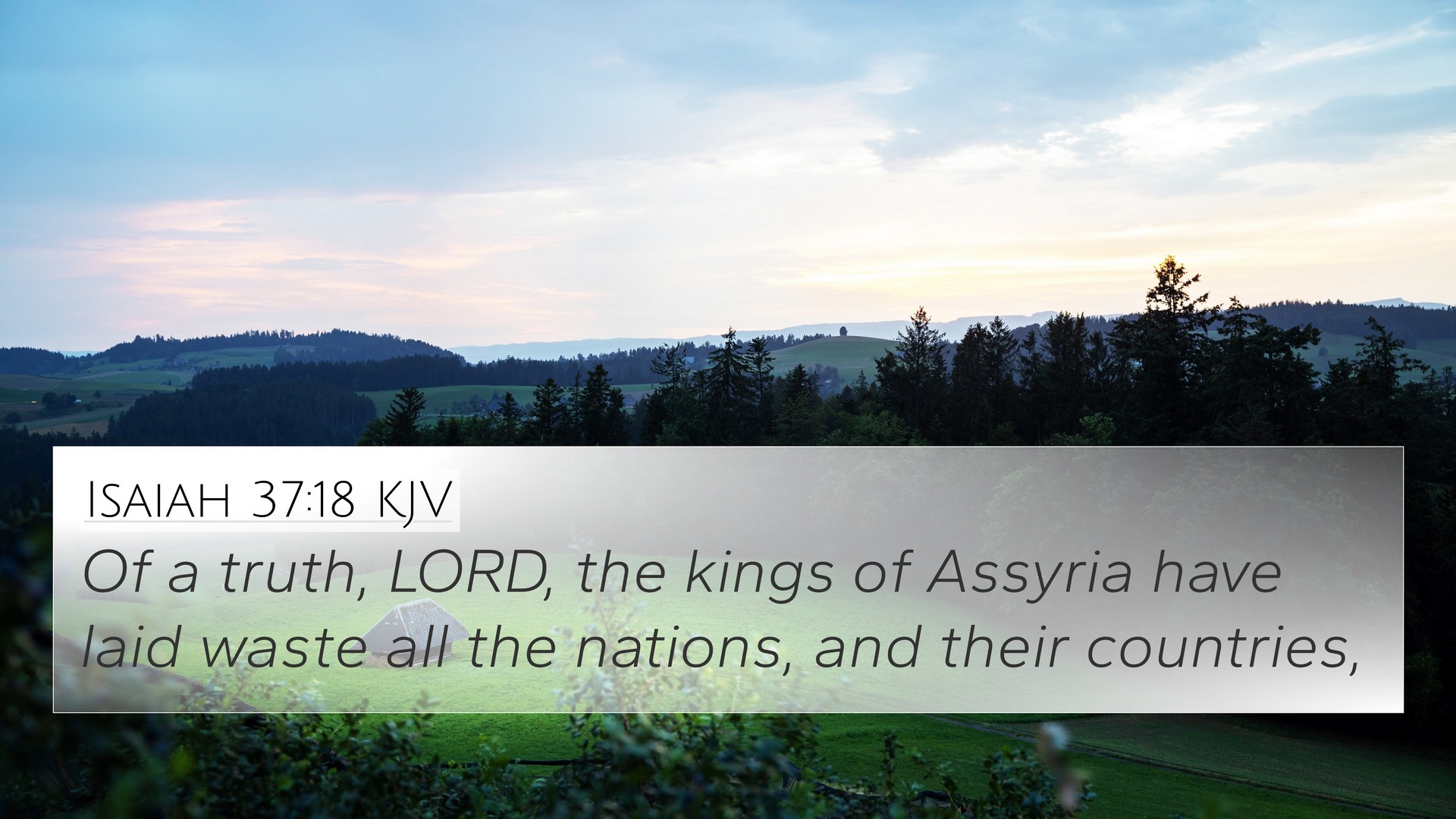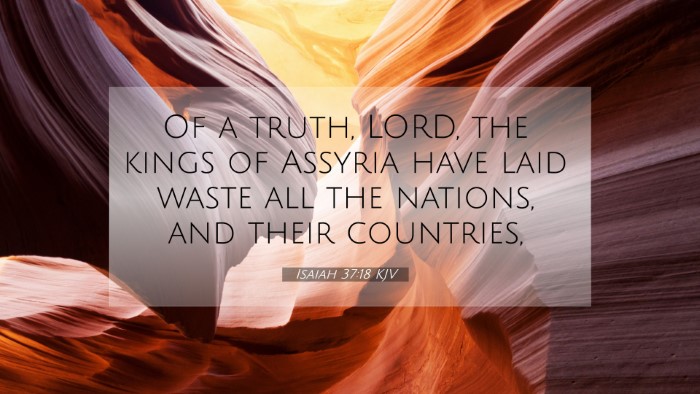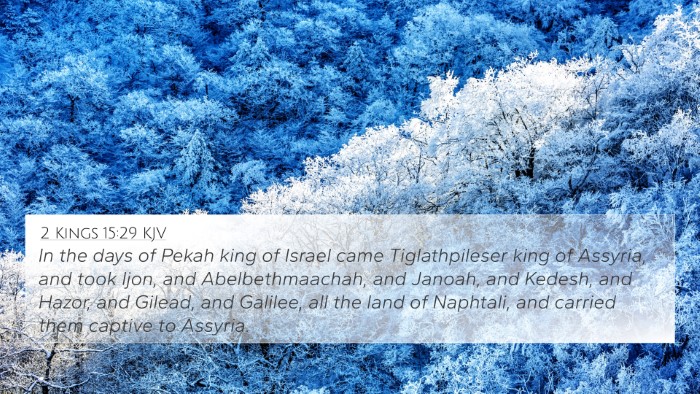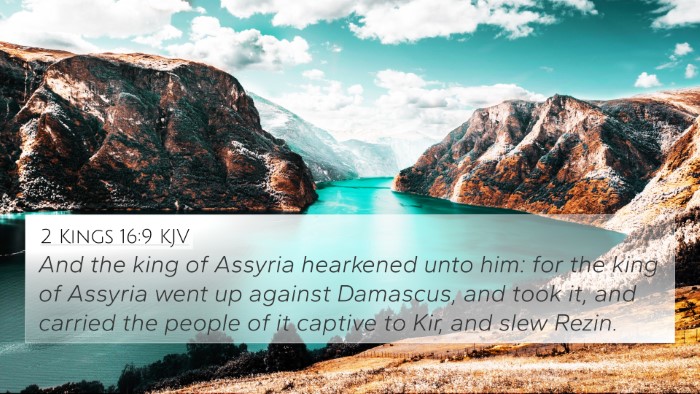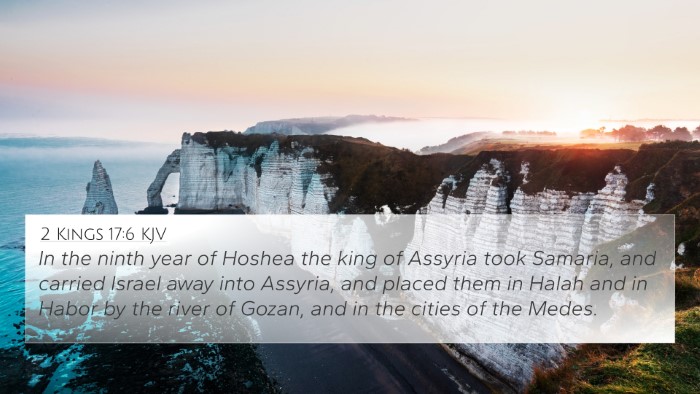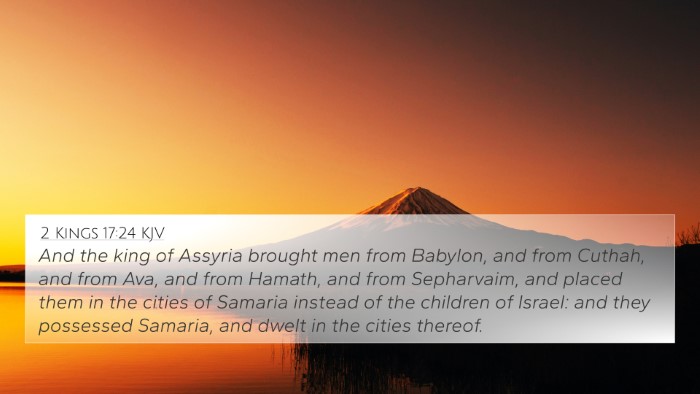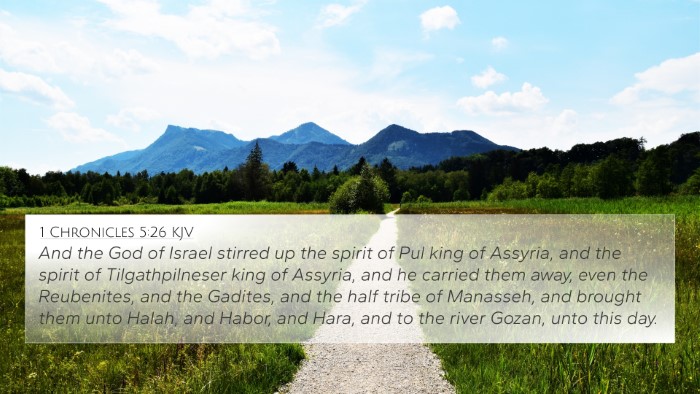Understanding Isaiah 37:18
Verse: "Of a truth, Yahweh, the kings of Assyria have laid waste all the nations, and their countries." (Isaiah 37:18)
Meaning and Context
The context of Isaiah 37 falls within the narrative where King Hezekiah of Judah faces the overwhelming threat of Assyria's military power. This verse captures a moment of recognition and a cry for divine assistance. The acknowledgment of the devastation wrought by the Assyrian kings highlights the severity of the situation, emphasizing Hezekiah's urgent need for help from God.
Commentary Insights
-
Matthew Henry:
Henry notes that Hezekiah's prayer reflects a deep understanding of the Assyrian's might and the spiritual responsibility to appeal to God. The verse serves to highlight the factual realities of the situation while recognizing the power of God above worldly authorities. Henry emphasizes that understanding the calamity leads to a meaningful prayer for intervention.
-
Albert Barnes:
Barnes points out that the mention of all nations laid waste illustrates God's sovereignty over even the mightiest of enemies. The Assyrians took great pride in their conquests, but the acknowledgment of their actions sets up a contrast to God's eventual deliverance. Barnes reinforces the idea that prayer is a response to truth, rooted in the believer's recognition of their circumstances.
-
Adam Clarke:
Clarke discusses the significance of Hezekiah's plea, emphasizing how it represents not only despair but also faith in God's ability to save. He describes the verse as a historical record that paves the way for a miraculous deliverance, stressing that Hezekiah's reliance on God serves as a model for believers facing insurmountable difficulties.
Bible Verse Cross References
This verse from Isaiah can be cross-referenced with several biblical texts that share themes of divine intervention in the face of overwhelming odds and the importance of trust in God:
- 2 Kings 19:10-12: A similar account of the Assyrian threat, where the arrogance of Sennacherib is recorded.
- Psalms 46:1-3: A declaration of God's presence and help in times of trouble, resonating with Hezekiah's situation.
- Isaiah 10:12-16: This passage prophesies about the Assyrian's destruction, linking it to God’s judgment.
- 2 Chronicles 32:9-15: Another detailing of the Assyrian siege and Hezekiah’s response, reinforcing the narrative.
- Romans 8:31: "If God is for us, who can be against us?" An encouragement for believers to trust in God's aid.
- Isaiah 37:33-35: God’s assurance of protection specifically against the king of Assyria.
- Matthew 6:33: A reminder to seek God first, suitable in understanding Hezekiah's priorities in dire situations.
Thematic Bible Verse Connections
Isaiah 37:18 aligns with larger themes throughout Scripture regarding God's omnipotence and our dependence on Him in trials. These connections illustrate multiple instances where God's people confronted powerful adversaries:
- Faith amidst Fear: Illustrated in stories like David and Goliath (1 Samuel 17), where faith triumphs over fear.
- Divine Intervention: Seen in the Exodus narrative, where God rescues Israel from Egypt's hold (Exodus 14).
- Assurance of God's Protection: Recurring throughout the Psalms, particularly in Psalm 91, demonstrating trust in God’s cover.
Conclusion
Isaiah 37:18 serves as a pivotal reminder of the power of prayer in the face of seemingly impossible situations. Through the insights derived from public domain commentaries, readers can discern the multifaceted nature of faith, the recognition of God's sovereignty, and the necessary response to invoke His assistance. Engaging with these biblical texts not only enriches one’s understanding but also strengthens the believer’s resolve to seek divine help amid life’s trials.
